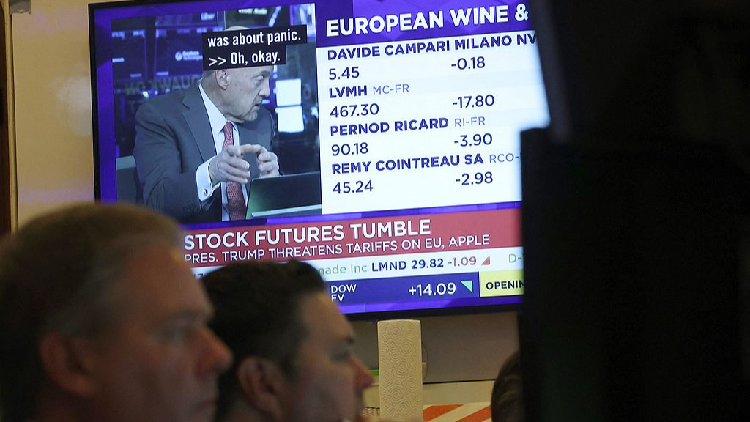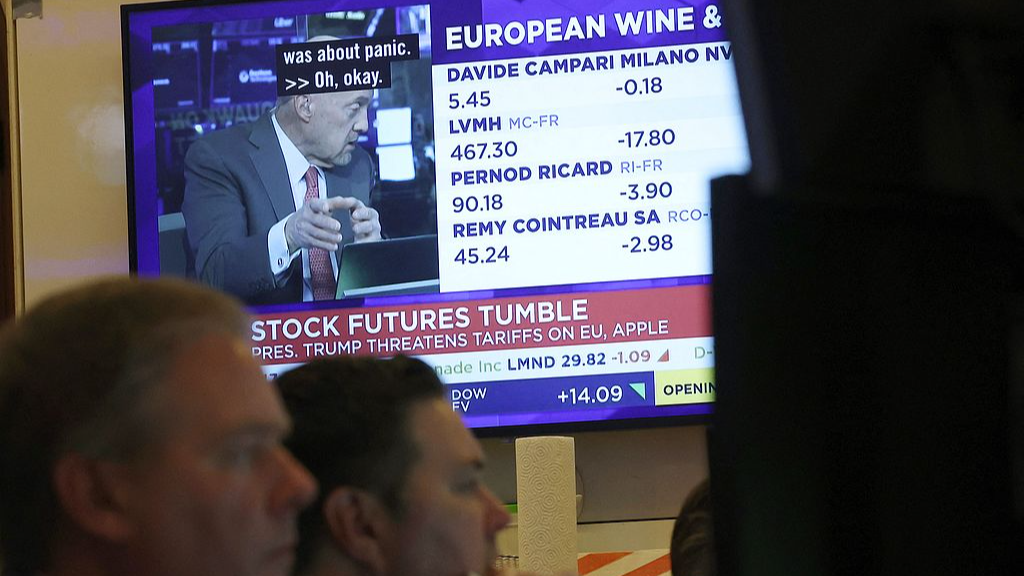EU Resists U.S. Pressure as Trump Extends Tariff Deadline to July 9
EU stands firm against U.S. threats as Trump pushes tariff deadline to July 9, escalating trade tensions.


U.S. President Donald Trump announced on Sunday that he would halt his proposed 50 percent tariffs on European Union goods until July 9. The decision followed what he described as a "very nice call" with EU chief Ursula von der Leyen, signaling a brief pause in rising transatlantic trade tensions.
Trump had previously warned that the dramatic tariffs could be enforced as early as June 1, citing frustration with stalled negotiations over existing levies. Speaking from Morristown, New Jersey, before boarding Air Force One, Trump said, "Von der Leyen just called me ... and she asked for an extension on the June 1 date, and she said she wants to get down to serious negotiation." He confirmed his agreement to the requested extension.
EU stands firm against U.S. 'provocations'
Efforts to stave off an all-out trade war between Brussels and Washington have so far resulted in temporary suspensions of tariff actions. But Trump's renewal of a tariff threat raised the stakes last Friday, casting doubt on the stability of cross-Atlantic commerce. He expressed skepticism regarding any new deal, stating, "The European Union was very difficult to deal with" and emphasizing his view that the bloc was created to "take advantage" of the United States.
German Finance Minister Lars Klingbeil responded by calling for "serious negotiations" rather than further provocations, warning that American tariffs would threaten both the U.S. and European economies. Similar concerns were voiced across Europe, with the EU's trade chief Maros Sefcovic emphasizing that trade relations must be built on "mutual respect, not threats."
Irish leader Micheál Martin described Trump's proposal as "extremely disappointing," warning that tariffs at such levels would harm global trade and significantly disrupt the vital economic relationship between the U.S. and EU. He stressed that negotiations remain "the best and only sustainable way forward."
Strong reactions also came from the European Parliament, where Bernd Lange, head of the EU's trade committee, asserted the bloc's readiness to implement counter-tariffs if necessary. "If the negotiations are unsuccessful, the European Union is strong enough to implement countermeasures, such as counter-tariffs, to offset the economic damage," Lange stated.
Tariffs endanger U.S. and European economies
The EU is among America's largest trading partners, exporting more than $600 billion in goods to the U.S. last year while importing $370 billion—a trade deficit of $236 billion for the U.S. When services are included, the European Commission estimates the gap narrows to around €50 billion ($57 billion).
The Trump administration's approach has included three rounds of tariffs on EU products, such as a suspended 20 percent "reciprocal" rate and persistent 10 percent baseline, in addition to 25 percent tariffs on steel, aluminum, and vehicle parts. Proposed new taxes could soon hit pharmaceuticals, semiconductors, and other sectors. In response, the EU has outlined plans to target nearly €100 billion ($113 billion) in American imports with tariffs of its own if talks collapse.
A recent European Commission report projects that increased U.S. tariffs would cause a moderate negative effect on EU GDP, but would inflict even greater harm on the American economy—resulting in higher consumer prices, weaker demand, falling exports, and sluggish investor confidence. The report warns that global retaliatory measures could deepen this impact.
Domestic unease inside the United States is mounting as well. According to a recent Harris Poll, 69 percent of Americans expect tariffs to increase everyday expenses, while half believe the economy has worsened since 2024. About 60 percent of households have already trimmed spending, with over 70 percent eating out less and 57 percent cutting back on entertainment.
With economic uncertainty on the horizon, economists have raised alarms about the risks of recession. A Reuters survey in April placed the median probability of a U.S. recession in the next 12 months at nearly 50 percent. J.P. Morgan analysts have predicted a 60 percent chance of recession due to the aggressive tariff strategy, even factoring in the recent pause on additional levies.
As the July 9 deadline approaches, both sides face urgent pressure to strike a compromise and avoid further escalation. The coming weeks will test whether renewed negotiations can succeed in restoring stability to one of the world’s most important trade relationships—or whether the threat of a costly trade war will become reality.




